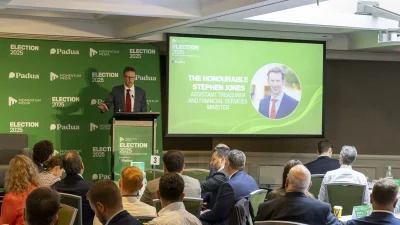Pre-retirees’ financial confidence takes a hit: Challenger



Australian pre-retirees are exhibiting heightened anxiety about their financial future and are seeking greater certainty as a result, Challenger research has uncovered.
The Challenger Retirement Happiness Index, developed with YouGov surveying more than 1,600 Australians aged over 60, underscored the increasing demand for financial security in Australia.
Some 85 per cent of pre-retirees are seeking greater certainty about their financial future, the research found, with rising living costs and a lack of financial certainty clouding their outlook.
Namely, three in four pre-retirees (76 per cent) said cost-of-living pressures have impacted their financial security and confidence that they will have enough money to last in retirement, up from 70 per cent last year.
This is particularly evident among Australian women, with 34 per cent saying they are extremely or very worried about outliving their savings, compared with 20 per cent of men.
Meanwhile, unadvised Australians are twice as likely to be extremely or very worried (35 per cent) about outliving retirement savings than their advised counterparts (19 per cent).
“We know retirement can be one of the most rewarding stages of life – but confidence is key,” commented Mandy Mannix, Challenger’s chief executive of customer.
“When people feel uncertain about their finances, they tend to hold back. That’s led to a chronic underspending problem in retirement, with many Australians living more cautiously than they need to.”
Despite the demand for greater financial certainty, one in five – approximately 1.2 million retirees – don’t know where to start, Challenger stated.
Some 74 per cent of Australians aged over 60 believe better financial education will improve their happiness, but half said they lack the resources to plan for retirement.
Moreover, nine in 10 Australians who have never sought professional advice are wanting free, basic retirement education, highlighting the significant opportunity to enhance financial literacy.
Mannix continued: “Retirees go from a steady pay cheque to a lump sum, and that sudden shift makes it hard to budget with confidence. That’s why a guaranteed, regular income for life is so powerful – it replaces that pay cheque, can keep up with inflation, and gives retirees the freedom to actually live their best life in retirement.
“Retirement confidence isn’t just peace of mind – it’s quality of life. When people feel financially secure, they spend, plan, and live without that worry.”
Challenger’s findings align with data from the MLC Financial Freedom Report late last year, which found 69 per cent of Australians do not feel prepared to make effective financial decisions, while only 31 per cent said they feel extremely or very equipped to make effective financial choices.
Moreover, just 25 per cent of those surveyed cited they are extremely or very prepared to navigate unexpected financial challenges, and a further 41 per cent worry about their finances on a regular basis.
When respondents were asked what would boost their confidence in managing these challenges, 24 per cent of Australians said they would benefit from access to financial advisers. This was up from 20 per cent in 2023.
Recommended for you
CoreData research has highlighted Australian financial advice practices are expanding beyond traditional financial advice and reinforcing the power of a professional network to build their service offering.
ASIC has suspended the Australian Financial Services Licence of a Melbourne-based financial advice firm.
South Australian financial advice firm Calder Wealth Management has announced a strategic partnership with a risk advice firm.
Despite industry criticisms, Financial Services Minister Stephen Jones believes the Labor government has moved the financial advice reform dial forward “significantly” during his term.















